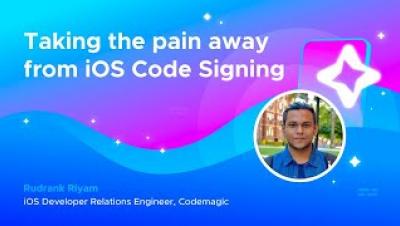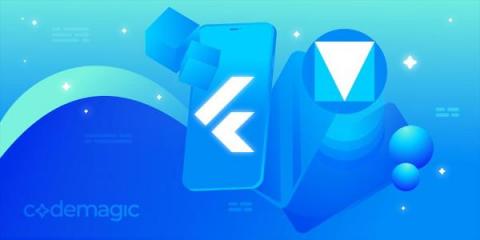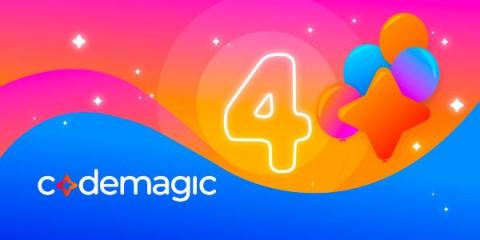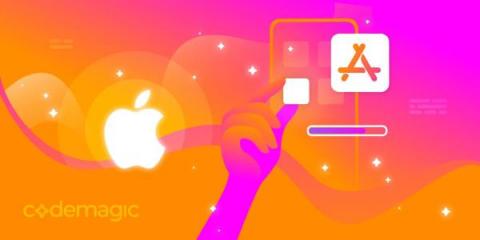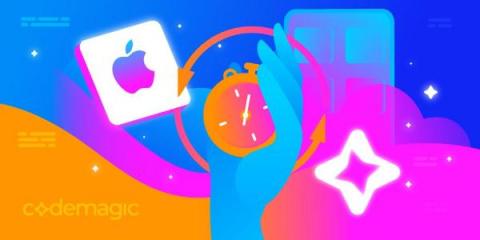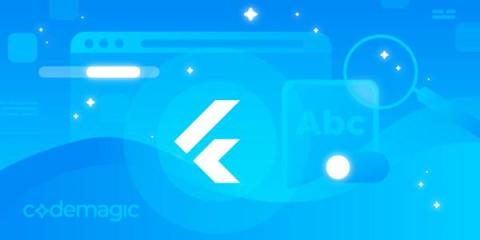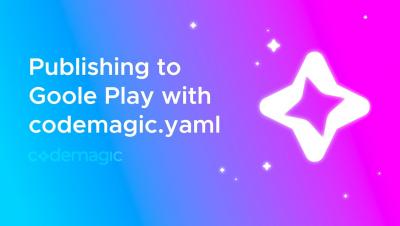Systems | Development | Analytics | API | Testing
Codemagic
How we contribute to the Flutter ecosystem
This month, both Flutter and Codemagic have an anniversary to celebrate! Flutter 1.0 was released in December 2018 at Flutter Live. At the same event, we launched Codemagic, the community’s favorite CI/CD tool for Flutter. This also marked the beginning of the ongoing partnership between the Flutter team and Nevercode, the company behind Codemagic CI/CD.
Migrating a Flutter app to Material 3
At Google I/O 2021, Google announced the next evolution of Material Design, Material You, along with Android 12. The Material Design system’s biggest overhaul yet brought redesigned components, new colors, a wide range of shapes, simplified typography, new elevation, better accessibility, and many other tweaks. With this update, Flutter apps can have a consistent design across multiple platforms.
Codemagic turns 4
Another year around the sun has passed, and Codemagic has already turned FOUR years old! Who remembers our launch in December 2018 at Flutter Live?! It feels like yesterday! We started out as a Flutter-specific CI/CD and then added support for other platforms, such as React Native, native iOS, native Android, Cordova, and Ionic. This year, we started supporting Unity CI/CD. We’re learning and growing year by year together with the community!
Publish to App Store Connect with Codemagic's Apple Developer Portal integration
Last year, we introduced an easier way of distributing your app to users via the App Store. It simplified and automated publishing apps on App Store Connect with a few lines you could add to your codemagic.yaml file. This feature automated your iOS releases from start to finish and pushed the CI-verified builds straight to the App Store. We are excited to announce that we have simplified this process even further! Now, you can directly reference the API key and authenticate with App Store Connect!
10 reasons to choose Codemagic CI/CD in 2022-2023
Codemagic is a CI/CD (continuous integration and continuous delivery) tool that is best suited for mobile developers. It can help you speed up your release cycle, get actionable feedback faster, and forget about the pain of manually submitting your apps to stores. Codemagic is evolving fast: This year, we added M1 Mac mini build machines and changed our pricing so that everyone can afford to use the friendliest mobile DevOps tool on the market.
Code signing issues in Xcode 14 and how to fix them
Since the release of Xcode 14, numerous code signing issues have emerged, plaguing builds across various CI/CD platforms. And even though code signing process was never easy, issues like these were relatively uncommon in previous versions of Xcode, such as Xcode 13 and Xcode 12, leaving many developers worried. If you are facing some unfamiliar code signing issues with Xcode 14, while everything seems to be fine with your keys and certificates, you aren’t alone.
A beginner's guide to go_router in Flutter
Routing is a crucial aspect of an app. Just like when you manage the application state or build the UI, you should give sufficient attention to optimizing the routing of your application. An optimized routing system helps users navigate your app and can handle the user state efficiently. go_Router is a declarative and minimal routing system built on top of Flutter’s Router API. go_router provides a convenient URL-based API to navigate between different screens.
Flutter widgets cheat sheet
Flutter is an open-source tool designed to build fast and beautiful applications across multiple platforms. The Flutter SDK has been widely adopted for developing mobile applications, and many developers are learning Flutter every day. It is important to create content that can help them do this, and that’s the aim of this blog post! So, we’ve prepared a simple cheat sheet of different Flutter widgets (and in Flutter, everything is a widget!), which you can use to build your Flutter apps.


